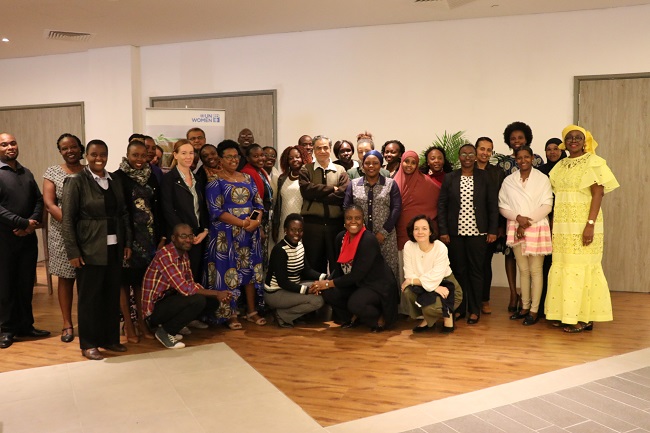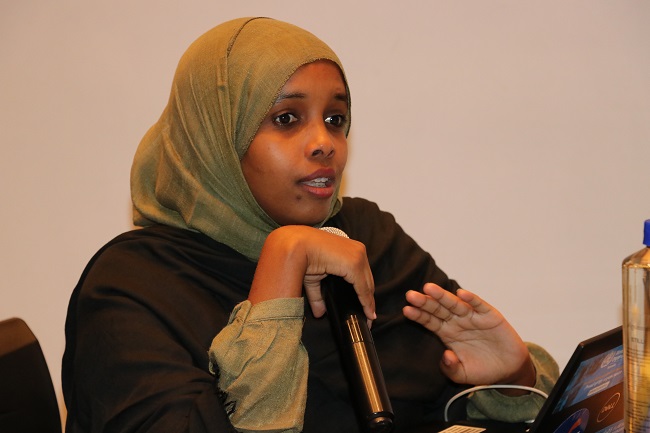Gender Mainstreaming Critical for effective Humanitarian Action
Date:

Nairobi, Kenya: Recognizing that crises affect both men and women differently, with women bearing the brunt of disasters in the region, UN Women conducted a five-day training of trainers (TOT) on ‘Gender in Humanitarian Action’. The regional training was convened to equip humanitarian programme advisors and specialists, with the tools and knowledge to strengthen their roles in humanitarian action including disaster preparedness, response and recovery- with issues of women and girls at the center.
The training comprised over 30 participants drawn from UN Women country offices in the region, representatives from governments, Civil Society Organizations (CSOs), international humanitarian organizations and other UN Agencies.
In her welcome remarks, UN Women Regional Director for East and Southern Africa, Izeduwa Derex-Briggs noted that even though UN Women is relatively new to the field of humanitarian action, there is need for the organization to strengthen its engagement in this area to ensure that women and girls are at the forefront of humanitarian action as statistics show that they are adversely affected before, during and after disasters.
“The first thing that should be done is a gender assessment. If one doesn’t have a gender lens at the back of their minds, they will never pick issues disproportionately affecting women and girls thereby increasing their exposure to risks like sexual and gender-based violence (SGBV), increased loss of livelihoods, security, and even loss of lives, during and in the aftermath of disasters,” she remarked.

Fartun Hassan Mohamud, Program Assistant working with World Health Organization (WHO) during the training. Photo: UN Women/ Faith Bwibo
The practical and interactive training built on participants’ expertise and experiences and was based on the IASC Gender Handbook for Humanitarian Action, a practical tool that provides guidance to frontline humanitarian workers on how to integrate gender equality and the empowerment of women and girls in humanitarian actions.
“As women organizations we have many interventions, but most do not know how to apply the gender issues into humanitarian settings except from the Gender Based Violence (GBV) cases. Now we will take into consideration other factors such as economic activities, gender analysis...” noted Grace Sawa Lilly, one of the participants from a women’s organization in South Sudan.
In conclusion, there was a clarion call for meaningful and inclusive engagement of all stakeholders in the humanitarian response plans. “The face of the crisis is always a woman. If you want to see the pains expressed as the results of the losses, the financial losses, the loss of children, loved ones and livelihoods, look at the women. The women are the face of these issues and the backbone of the responses as well. It is therefore critical that we engage women and men meaningfully in the humanitarian response,” noted Yemi Falayajo, Programme Management Specialist UN Women Malawi.